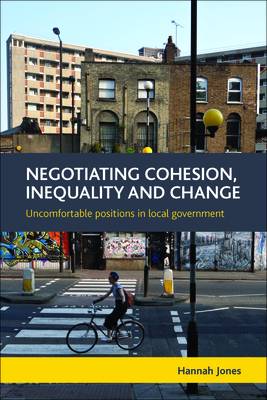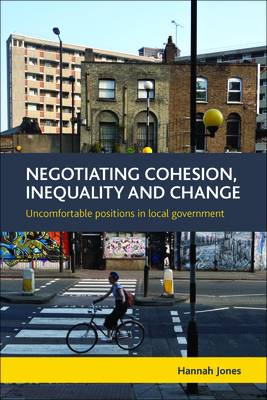
- Retrait gratuit dans votre magasin Club
- 7.000.000 titres dans notre catalogue
- Payer en toute sécurité
- Toujours un magasin près de chez vous
- Retrait gratuit dans votre magasin Club
- 7.000.0000 titres dans notre catalogue
- Payer en toute sécurité
- Toujours un magasin près de chez vous
Negotiating Cohesion, Inequality and Change
Uncomfortable Positions in Local Government
Hannah JonesDescription
How are multiculturalism, inequality and belonging understood in the day-to-day thinking and practices of local government? Examining original empirical data, this book explores how local government officers and politicians negotiate 'difficult subjects' linked with community cohesion policy: diversity, inequality, discrimination, extremism, migration, religion, class, power and change. The book argues that such work necessitates 'uncomfortable positions' when managing ethical, professional and political commitments.
Based on first-hand experience of working in urban local government and extensive ethnographic, interview and documentary research, the book applies governmentality perspectives in a new way to consider how people working within government are subject to regimes of governmentality themselves, and demonstrates how power operates through emotions.
Its exploration of how 'sociological imaginations' are applied beyond academia will be valuable to those arguing for the future of public services and building connections between the university and wider society, including scholars and students in sociology, social policy, social geography, urban studies and politics, and policy practitioners in local and central government.
Winner of the BSA Philip Abrams Memorial Prize 2014
Spécifications
Parties prenantes
- Auteur(s) :
- Editeur:
Contenu
- Nombre de pages :
- 224
- Langue:
- Anglais
Caractéristiques
- EAN:
- 9781447310037
- Date de parution :
- 01-12-13
- Format:
- Livre relié
- Format numérique:
- Ongenaaid / garenloos gebonden
- Dimensions :
- 152 mm x 236 mm
- Poids :
- 498 g

Les avis
Nous publions uniquement les avis qui respectent les conditions requises. Consultez nos conditions pour les avis.






